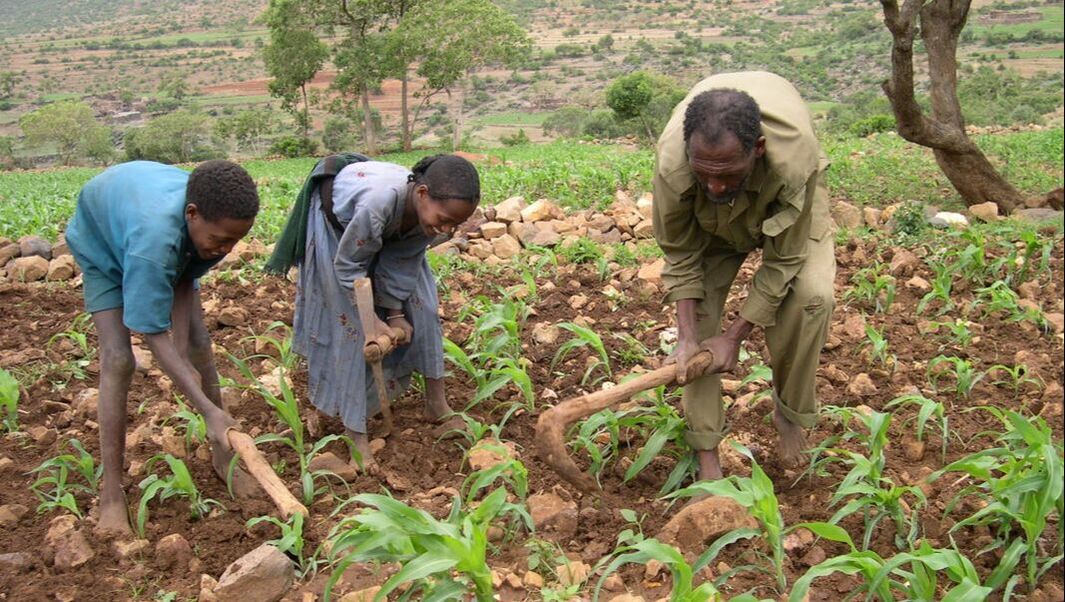 Pilirani Chirambo, NfYD Pilirani Chirambo, NfYD Landran frarøver ungdom muligheten til å bygge seg en framtid, sier Pilirani Chirambo (Network for Youth Development, Malawi) In a Malawian perspective, the system of land grabbing is described as the acquisition of large scale land, buying of large pieces of land in developing countries by domestic and transnational companies, governments and individuals. This system mainly reemerged in the context of a spike in global food prices between 2007 and 2008. It initially focused on new players potentially acquiring vast areas of land in developing nations, and most of the targeted nations which constitute two thirds of the acquired land worldwide belong to the sub Saharan Africa. Therefore, Malawi being a part of it has been and still is experiencing the negativity of land grabbing. Land grab in Malawi has been deeply rooted because it is efficiently accepted, supported and nurtured without considering its long term consequences on its citizens and more particularly on the youth who are a large constituent of this nation thereby being affected the most since their future remains uncertain. Here are the most highlighted factors that are contributing to land grab in Malawi. It should be noted that these factors can however be defeated if only there is serious and dedicated joint global action. Power Imbalance Power imbalance remains an enormous hindrance to the country’s development due to unequal distribution of available common and essential resources such as land. With this attitude being in full view, government response to grassroots resistance against a spate of multi-national or cooperate driven land grabs has emerged as a point of focus recently. This is because even though local communities with support from civil society actors have bemoaned and resisted most attempts for the sake of food sovereignty and security, government has stood “willfully” as a deaf player thereby ignoring such concerns. What is more alerting, is how it is on record that no land transaction on any occasion has ever been cancelled or put on hold due to the public outrage over the land grabs. As a result there is tension among the indigenous people over potential loss of land which is the main source of livelihood. In this case customary land is taken away from them by their community leaders with an aim of selling it off to companies or large scale farmers and displacing them without any resettlement plan. Residents regularly loose out to local elites, domestic and foreign investors because they lack the power to claim their rights effectively so as to defend and advance their interests. This is what calls for intervention as far as NFYD is concerned, because in any case, power relations between the buyers and local communities must change if investment is to contribute to rather than undermine the food security and livelihoods of local communities. Foreign Investors Large scale land acquisition in Malawi by foreign investors continue to be flagged highly, evidence of success in such land grabbing exercises have been marked by a lot of maneuvering and backing by the government through deceit and empty promises to the land owners on better livelihood. The distinctive feature of land grabs in Malawi is that they are supply driven; this is to mean that the government is courting potential domestic and international investors by offering them land to be acquired from smallholder farmers for large scale irrigation farming or massive businesses. Government’s argument is that it aims for the benefits which also act as drivers to modernization and development that come together with those kinds of investments such as agricultural benefits, job creation, cash crop production regarded as green gold and infrastructure provision in terms of hospitals, roads, schools and running water availability. The question that is ignored is that how can the whole country develop when a larger group of economic development contributors (young people) is being stripped of its number one asset which is land? Due to land grabs small holder farmers’ lands can be described as a portion providing a cushion or safety net that provide them with a base while their primary incomes need to be generated elsewhere. It is unfortunate that those small holder farmers are reduced to casual laborers facing harsh job conditions thereby having their economic status lagging behind. However, its time governments as well as community leaders recognize that those development promises should not substitute in promoting domestic land ownership and investment. Through land grabbing, useful resources such as water and minerals are sold together with the land, thereby being on the losing side since most of the products ‘ profit does not come back to us. Lack of Government supportive Policy Infrastructure Malawi government categorizes land as “non- private” and it only offers land in form of lease which takes about 25 to 99 years. As a result government policies on public land ownership and lack of active titling makes the government own or control land. Most of this land is made available to investors for leasing at the expense of the grassroots since in most cases land sold as unused or undeveloped is the one actually being used by young people and their families to grow food. As such government is placed as the biggest obstacle for the fair handling of land deals because it rushes to support the well to do minority other than the “supposed to develop” majority who rely on land as their principal source of livelihood. The main argument is that the youth are marginalized because of stalled land policies. Often times they are at the peripheral, waiting to hear the government or leadership make decisions other than having them to voice out their concerns before their land is taken away. Due to this land distribution is very unequal. For instance, it is estimated that 30 000 estates cultivate on 10-500 hectares of land while 1.8 to 2 million cultivate on 0.5 – 1 hectare of land. This only shows how youth are affected in their development growth. Politics and Corruption It has been noted that before investors come into a country they navigate the functionality of bureaucracies and probably potential crooked ways in form of potential payoff corrupt personnel of government so that they intentionally avoid a presentation of viable and sustainable business plans or other formal processes in settling their businesses. As a result the investors are given any land available without going back to consider the initial plan of that land. Land grabbing is being spear headed by our own leaders. In Malawi government work is blended with politics, due to this the idea to solve this pressing issue remain rhetoric as no important figure is willing to support the idea which was initiated by another. So in this case, land reforms which would have rectified this land grabbing issue remain hanging since the one responsible for the idea died. Furthermore, the impasse in the implementation of the land reforms is attributed mainly to the desire of the political and bureaucratic elite who concentrate in defending their interests because a majority of them acquired massive tracts of land that unfortunately lies idle under the auspices of the previous land reforms. In turn land reforms only take place in terms of consolidating the village family lands so as to sell it or allocate it to investors. Land grabs in Malawi are a major concern because the impact is very strong and high, since land is the principal source of livelihood and the most sustainable asset of the country. By it being traded away it means what the country’s wealth is also fading and lighting up in the hands of those holding it. What is so pressing is the thought of the economic and social future of the youth who as of now are not considered as to how land grabbing is and will continue to negatively contribute to their downfall. It is not being taken into consideration of how excluding the youth in decision making have long term trajectories of development. In this view, Malawi’s development is projected to shrink if the 13.1 million youth are not going to access land either for agricultural activities or other businesses. Apart from economic development, young people are getting psychological destructions resulting from their invisibility shown by the leaders. Research has shown that due to the feeling of being pushed aside overall youth demonstrate a sense of powerlessness, hopelessness and alienation such that they are no longer interested to work hard in other activities which can uplift their lives since they now think they are incapable. This current fate of the youth seriously needs joint action to reverse the situation. Let us fight together so that this current situation does not remain their fate which will be regarded as the most painful missed opportunity in land which is the main route to success. Do not let land grabs grab away young peoples’ chance to utilize their land with all their energy, capacity, innovative ideas and excellent sources which will turn out to be a brilliant dreams being fulfilled. Pilirani Chirambo, NfYD pilira@nfydmw.org For more information about NfYD, visit their website here. Comments are closed.
|
|
Adresse: Schweigaards gate 34C, 0191 Oslo
Org.nr: 912 159 167 |
Vipps: #11378 |
Proudly powered by Weebly




